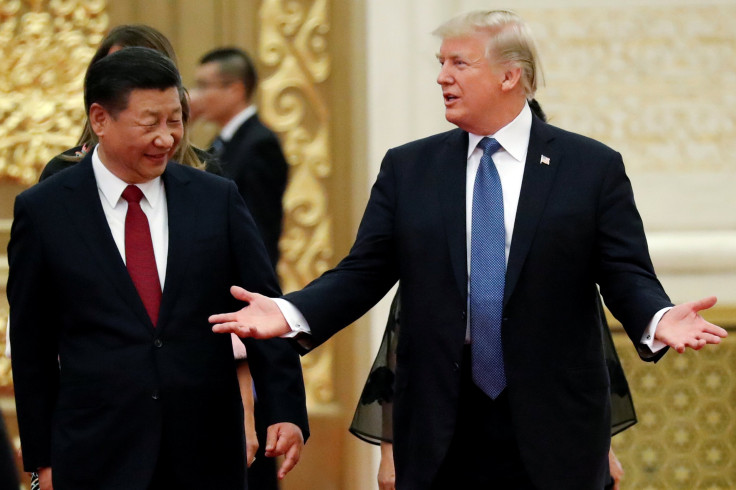China ‘Will Not Recoil From A Trade War,’ Proposes Multiple Reciprocal Tariffs

The world’s two largest economies may be headed toward a full-blown trade war, after President Donald Trump signed an executive order Thursday imposing tariffs up to $60 billion on Chinese imports, and the Asian country reacted Friday with a proposal to hike the tax on over 100 products imported from the United States.
Soon after Trump signed Trade Act Section 301, which he called “the first of the many” actions he would take to balance the trade deficit with China, the U.S. embassy of the world’s second-largest economy responded with a tough statement, calling the move “self-defeating” and saying the country “does not want a trade war with anyone. But China is not afraid of and will not recoil from a trade war.”
"China does not want a trade war with anyone. But China is not afraid of and will not recoil from a trade war." Chinese embassy in Washington weighs in... pic.twitter.com/2ndCODYSvv
— Shawn Donnan (@sdonnan) March 22, 2018
When Trump had announced higher tariffs on steel and aluminum imports earlier in March, China had expressed its displeasure at the time too, and had said it was considering reciprocal tariffs on both products, a threat it repeated Thursday. While that may not hurt the U.S. economy much — seeing as how little of both metals the country exports to China — what could hurt is if China decides to implement duties on agricultural imports from the U.S.
Besides, China’s ministry of commerce published a list Friday of 128 U.S. products it is considering tariffs on, totaling to about $3 billion worth of imports in 2017. Broken down in two parts, the first part of the list covers 120 taxes, adding up to about $1 billion, on products like fresh fruit, dried fruit and nut products, wine, modified ethanol, American ginseng and seamless steel pipes, all of which could be subject to 15 percent tariff. The eight items in the second part of the list, including pork products and recycled aluminum, are proposed to be taxed at 25 percent, adding up to roughly $2 billion.
In its statement, the ministry said the move by the U.S. to impose tariffs on imports “has severely damaged the multilateral trade system represented by the WTO and seriously interfered with the normal international trade order.” The country would also “take legal actions under the WTO framework,” it said.
In a related notice, the ministry added: “In order to effectively protect China’s interests, China intends to suspend substantive equal concessions and other obligations to the United States,” and asked various Chinese organizations and individuals for suggestions and opinions, to be submitted by March 31. It is safe to assume an announcement will be made only after that date.
U.S. exports to China are expected to be in the range of $170 billion in 2018, and it is among the top three export markets for goods produced in the U.S. According to U.S. government trade data for 2017, the U.S. exported goods worth $130.3 billion to the China, while importing goods worth $505.5 billion, creating a net deficit of $375.2 billion in China’s favor.
© Copyright IBTimes 2025. All rights reserved.





















